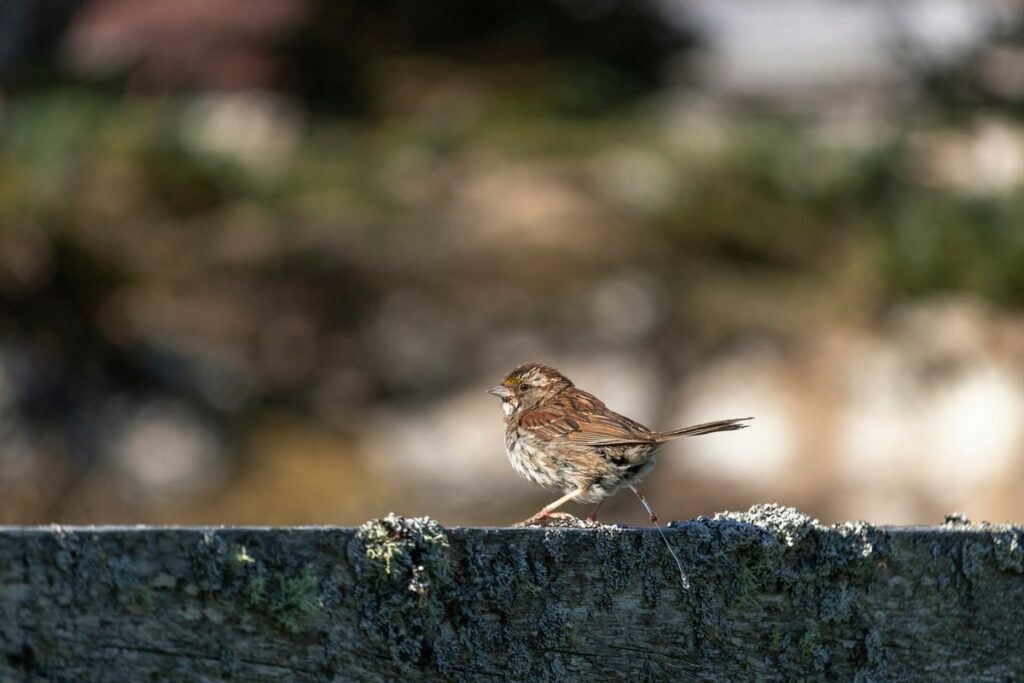We’re all familiar with the infamous white substance birds release in the most unfavorable moments, right?! Be it that it lands on our cars or even on us, we often wonder what it consists of. Is it poop? And, if it is, when do birds pee? They don’t seem to excrete anything else besides that whitish substance. So the right question is, do birds actually pee?
Birds produce urine, but they don’t pee like other animals. Instead, they excrete urate (or solid urine) and feces together through their cloaca. Moreover, their urine content is completely different from that of humans and mammals.
As such, if you want to discover more about how exactly birds pee and learn what urinary disorders they can suffer from (that is, if you have a pet bird and are concerned), keep reading! We’ve also included some details on whether bird droppings (urine included) are harmful to humans.
Do Any Birds Pee?
Birds do not actually pee – at least, not how humans and mammals pee. But they do produce urine, which is excreted in a completely different way.
Birds do not have bladders where they can store urine. Instead, after leaving the ureter, the urine enters the bird’s cloaca. This is a chamber where the terminal parts of the urogenital and digestive systems arrive. It also serves as a passageway for reproductive purposes, as well as laying eggs.
After the urine arrives in the cloaca, it may go to the large intestine through reverse peristalsis, where excess water is reabsorbed to be further used for hydration if needed. Then, what’s left from the urine is a nitrogenous waste consisting of high uric acid levels and low levels of actual water.
As such, this urine which is, in fact, called urate or solid urine, is eliminated from the body altogether with feces. In short, birds pee and poop simultaneously, and both substances exit the body from the same hole. The whitish part is the pee, while the dark parts are the feces.
Birds can even pee while flying – how convenient is that?!

Why Is My Bird Peeing Differently?
If you have a pet bird, a parrot or fowl, for example, and noticed that it “pees” more or less frequently, you’re probably wondering what causes it.
The truth is, like humans and mammals, birds can also suffer from various urinary conditions. And, in fact, the color of their droppings can tell a lot about their health.
For instance, the color of their urate is linked to how much protein the bird has in its diet. The whiter the urate, the more protein the bird eats – in short, this equals large uric acid deposits.
Moreover, some birds can exhibit symptoms like:
- Increased or decreased urination
- Blood in urine
- Unusual smell (bird droppings don’t usually have a strong smell, so if you notice a weird one, this might indicate a disease or infection)
- Increased or decreased thirst
- Difficulty in movement
These symptoms are often associated with kidney and urinary tract disorders that may be caused by infections, injuries, other diseases, malnutrition, and dehydration.
Some urinary diseases birds can suffer from include:
- Kidney or urinary tract stones may cause your bird to release droppings less frequently because the process is painful; there may also be blood in the urine.
- Infections like psittacosis or poxvirus
- Gout, caused by excessive uric acid deposits in the tissues surrounding the kidney; besides abnormal droppings, the bird may exhibit swollen joints; it may even limit movement or show discomfort while moving.
- Renal failure as a secondary condition to infections or other urinary tract disorders.
As such, if you notice anything different in your bird’s way of passing waste, it’s highly recommended to take it to a veterinarian for a check-up. Diagnosing disorders at home can put your bird’s life at risk.
Are Bird Droppings Harmful to Humans?
Bird droppings can indeed be harmful to humans, although it’s highly unlikely you’ll get infected by anything if a bird poops on you.
However, if wild birds are a constant presence in your backyard, you should consider taking proper health and safety measures.
Birds are known to carry over 60 different diseases, which can be transmitted to humans not only via droppings but also through the air, as some can become airborne.
Here are some diseases that birds can spread via their droppings consisting of urine and feces:
- Candidiasis – a fungal infection spread primarily by pigeons; it can spread to internal organs and become a serious threat if left untreated.
- Histoplasmosis – a respiratory disease that can be transmitted through old bird droppings that contain a certain type of fungus; it is often associated with starling and pigeon droppings and can affect both humans and animals.
- Cryptococcosis – a fungal infection caused by Cryptococcus neoformans; studies show that it has been identified in around 84% of the collected droppings found around roosting and nesting sites; the most significant source of this fungus is linked to pigeon droppings, and humans can get infected only by inhaling the organism cells.
- Psittacosis – a disease caused by inhaling a bacterium that thrives in bird droppings.
- E.coli – birds nesting around farms can get E.coli by pecking at cow manure which can contain the bacteria; if droppings from infected birds land in water or food supplies, they can cause health issues.
These are only some of the diseases associated with bird droppings. Moreover, besides diseases, birds can carry various parasites that can bite and cause invasions. Some include chicken mites, northern fowl mites, soft ticks, biting lice, and pigeon flies.
